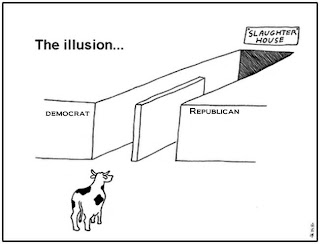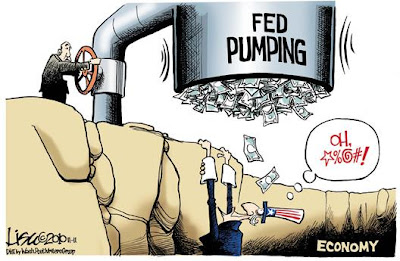To understand economics, you must always always
always look towards the individual. You must understand the tree before you can even hope to understand a forest. Likewise, if you don't understand the individual, you can't understand the vast complexity of commerce among a great number of individuals.
To best illustrate this, many economists use the classic example of Robinson Crusoe, the famous castaway. I haven't read Robinson Crusoe, so instead I'm going to use Tom Hanks in Cast Away.
Even stuck on an island in the middle of nowhere, people still act economically. They work to get food, water, and all the supplies they need. More complex ideas like property rights and trade are purposefully kept out of the picture so that we can just look at this one man, fighting against nature.
Before today, this island was entirely uninhabited. This island was not part of any economy. It had rocks and trees and coconuts on it. But now that there is a human on it, with the presence of an acting man, this island is (or at least soon will be) economized.
Stranded on this desert island, Tom Hanks takes
action. Now, when we say this, we mean purposeful behavior. Tom Hanks, the individual, has goals that he wants completed. His world is unstable, and he believes he can improve it. He wants food. He wants shelter. He wants warmth.
To satisfy these wants, Tom will employee some means to achieve these ends. This is purposeful action, entirely distinct from unconscious twitches and basic reflexes. Tom will employee his mind, his reason, to figure out what these means are. The things which Tom uses as a means to fulfill his ends are called
goods.
One of the first things Tom will need is a source of food and water. These goods will directly satisfy his desires of staying hydrated and staying nourished. By eating, he directly satisfies his hunger and by drinking he directly satisfies his thirst. Because these goods will directly satisfy his desires, we call these things
consumer goods. Please note that consumer goods do not need to be literally consumed. The clothes he is wearing, for example, are consumer goods, since they are directly keeping him warm.
But strangely enough, Tom Hanks is unable to bite through the coconut. How ever will Tom Hanks ever solve this problem?
Now, he could keep gnawing on it until it breaks, but that's rather inefficient. If he is going to eat the coconut, he's going to need to figure out a way to open the coconut up. So he picks up a rock and starts hitting it. This rock has become something known as a
producer good. This rock will not directly satisfy Tom Hanks hunger problem, but he hopes that by using it as a tool, he can obtain his desired consumer good more efficiently.
However, the rock is very dull, and doesn't break through the coconuts very easily. As time goes on, Tom will want to increase his
income, or the rate at which he obtains goods, by boosting efficiency. If he spends time developing that rock into something new like a knife, he will have created a special type of a producer good known as a
capital good.This producer good is distinct from the rock in that it is a man-made tool, as compared to just something that was lying around naturally. Nature has been developed upon.
This capital, by the way, is what we refer to in the name Capitalism.
To create a capital good, Tom had to restrict his consumption, also known as
saving, and transfer his labor from producing immediately satisfying consumer goods to the production of the knife so that he may consume more in the future. This process of creating capital goods is known as an economic
investment.
But the most valuable producer good that Tom has at any time is himself! When we use our own bodies to produce something, it is called
labor.
This is in direct contrast to when Tom uses his body in the way he wants, like relaxing on the beach, swimming, or sleeping. In these cases, Tom's activity is known as
leisure.
Now, Tom might enjoy working, but that does not stop it from being labor. If there was no end result in his mind, then he would not consider doing the job. For example, Tom might like climbing trees to collect coconuts, but if he already knew a certain tree didn't have coconuts, he wouldn't consider climbing it.
Instead, Tom would engage his time in
play, a consumer good, which is any activity that is sought for it's own sake. This could, again, end up just be climbing trees, but the distinction is that he is not directly seeking a final product, but is just enjoying the activity.
So as you can see, even in our one man economy, many of our basic economic principles are still in place. We still have production, goods, capital, and income. Economics isn't just this big, complex working of society. As long as their is a man taking action, trying to fulfill his desires, economics is taking place.























